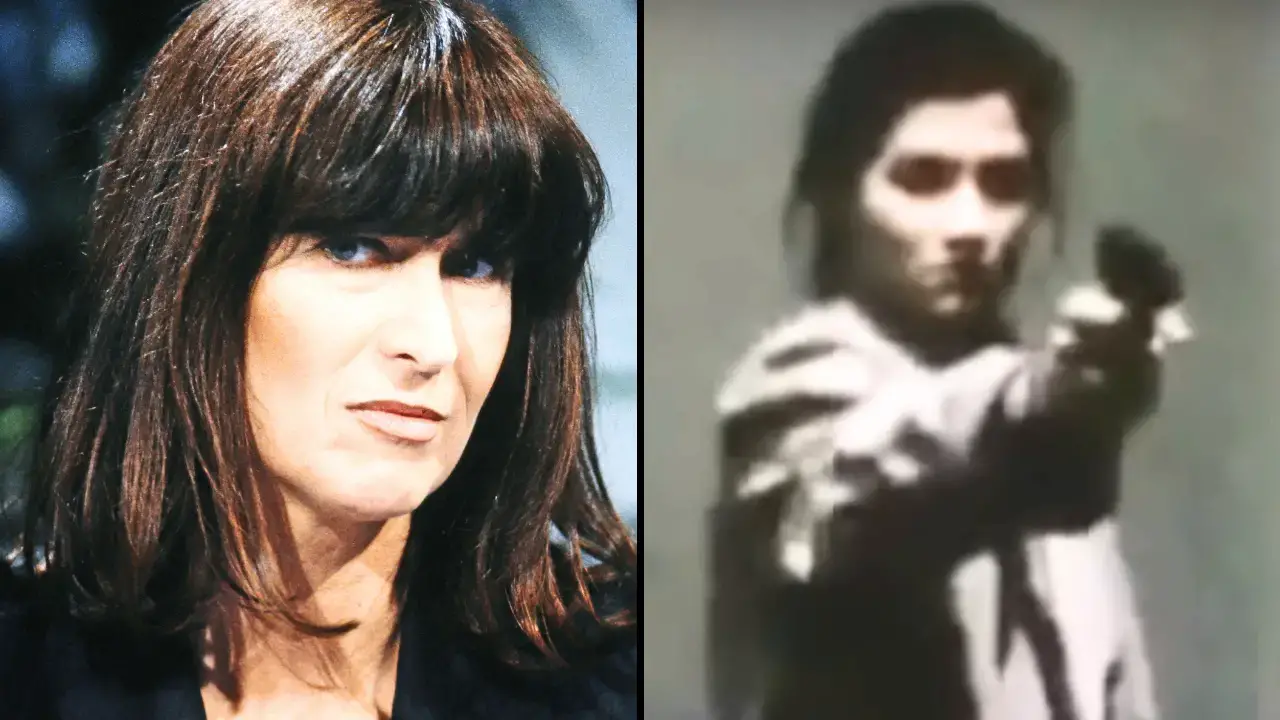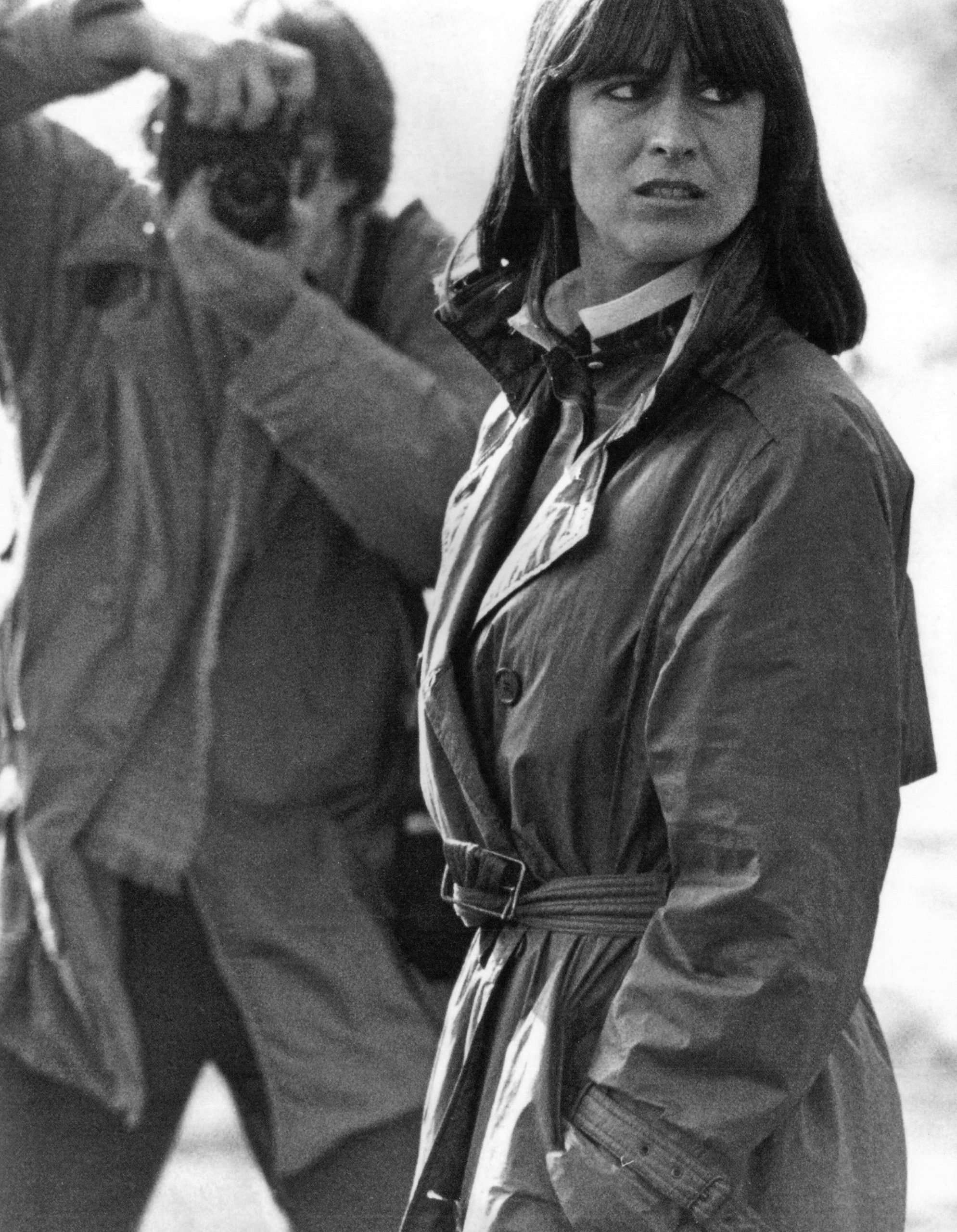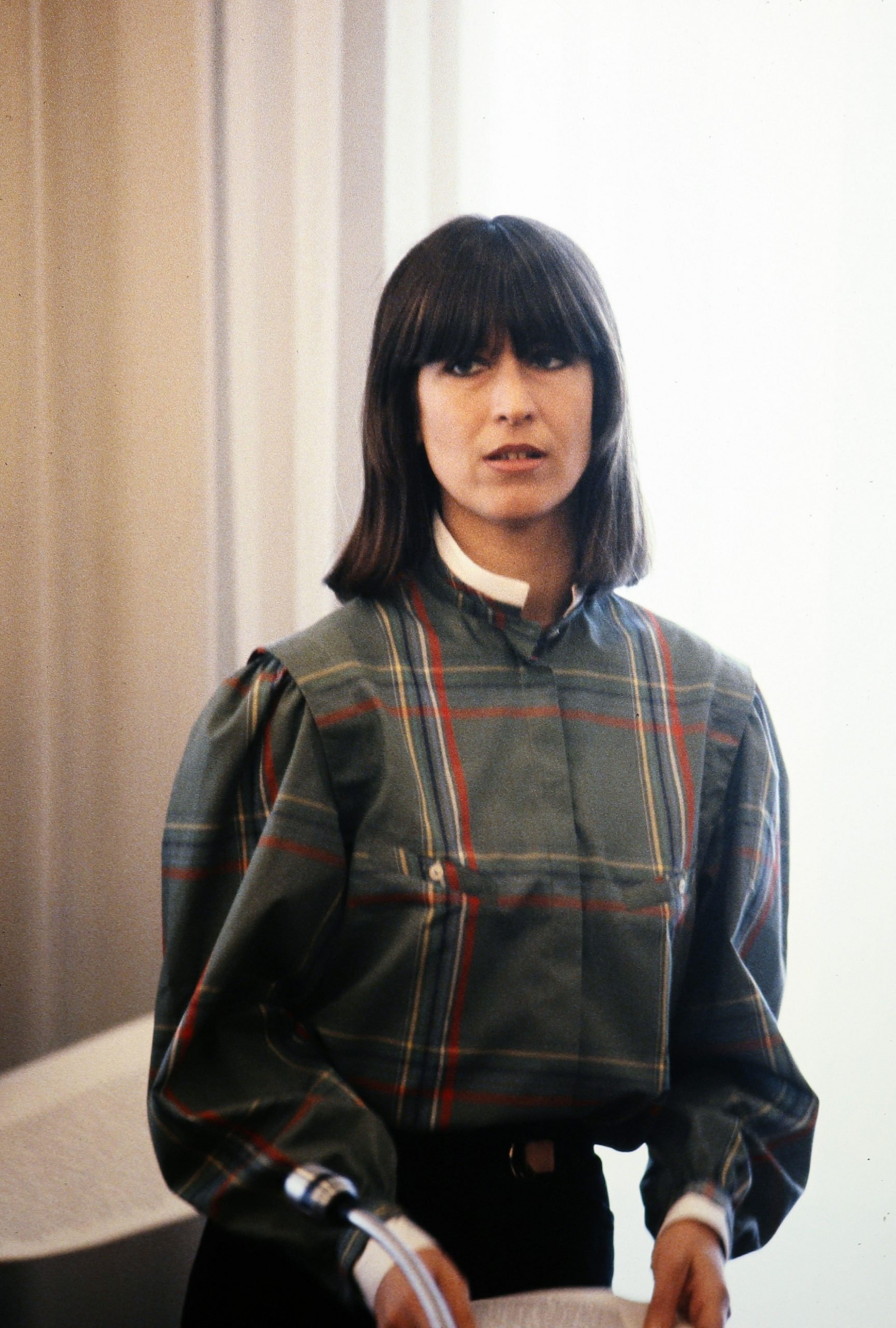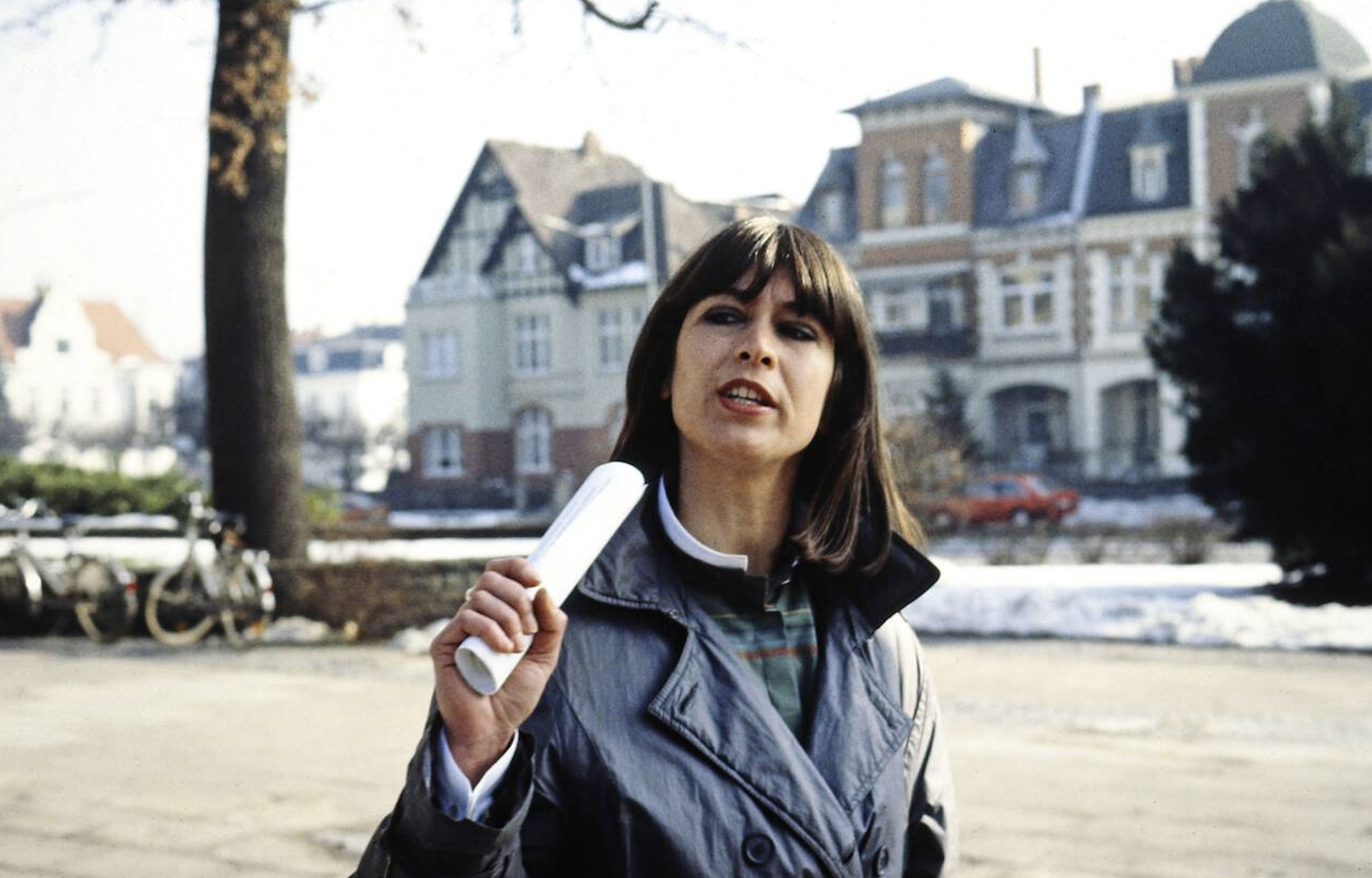
Credit: Alamy & Mim Mehmet Karaman via YouTube
Mum Fired Seven Shots At Her Daughter’s Killer In Front Of Packed Courtroom
The story of a mother who fired seven shots at her daughter’s killer in front of a filled courtroom has shaken the internet.
In criminal history, the name Marianne Bachmeier stands out.
The reason?
It’s not only for the tragic loss she endured – but also for the dramatic and controversial act that followed.
Bachmeier opened fire on her daughter’s killer in front of a packed courtroom.
And that was only the beginning of her bizarre and fascinating life story…
Related Article: Woman Who ‘Wheeled Dead Uncle’s Corpse Into Bank For Loan’ Finally Breaks Silence With Disturbing Question
Related Article: Teenage Girl Shot Dead By Police As She Tried To Escape Armed Kidnapper
Bachmeier’s life was irreversibly changed on May 5, 1980, when her seven-year-old daughter, Anna, was abducted and murdered by convicted s** offender Klaus Grabowski. It remains unclear whether or not Grabowski s**ually assaulted the child.
NDR reports that young Anna Bachmeier skipped school on that fateful day after an argument with her mother and ‘fell into the hands of Klaus Grabowski’.
What followed was a brutal crime that shocked the nation and forever altered the course of Bachmeier’s life.
After keeping her for several hours, Grabowski strangled Anna with a pair of pantyhose. He then placed her body in a cardboard box and dumped it by a canal.

Grabowski was arrested that evening when his fiancée alerted the police, leading to his confession.
However, he denied s**ually assaulting Anna, instead bizarrely claiming she tried to blackmail him by threatening to accuse him of harassing her if he didn’t give her money.
Grabowski, who had a history of s**ual offences, had been chemically castrated but sought hormonal treatment to reverse the effects.
His heinous act against Anna brought widespread outrage, not only due to its brutality but also because it underscored systemic failures in monitoring and rehabilitating repeat offenders.
The trial of Grabowski commenced in 1981, drawing significant media attention and public interest.
On March 6, 1981, during the third day of the trial, Anna’s mother Bachmeier smuggled a small calibre pistol into the courtroom.
In a moment of turmoil, she stood up, aimed the weapon at Grabowski, and fired seven shots, hitting him six times.
“I wanted to shoot him in the face. Unfortunately, I hit him in the back. Hopefully, he’s dead,” Marianne Bachmeier said shortly after the crime, per NDR.
Grabowski died on the courtroom floor.

Bachmeier’s act of vigilante justice was unprecedented in German legal history.
The courtroom erupted into chaos, and Bachmeier was immediately arrested.
Her actions garnered a wide range of reactions from the public, with many empathising with her grief and anger, while others condemned the extrajudicial killing.
“I heard he wanted to make a statement. I thought, now comes the next lie about this victim, who was my child,” she later explained.
A clip of a reconstruction of Bachmeier’s act of revenge in the courtroom resurfaced on YouTube, sparking one person to comment: “As a mom of three and grandma to four, it would take a miracle for me to not have wanted to do the same as her.”
“We would’ve all done the same,” another writes.
A third pens: “This is an iconic mother who went through so much pain and suffering all her life just like her little daughter… More people need to know about her.”
Bachmeier’s own trial began in November 1982 and became a media sensation.

She was charged with murder, but her defence argued that she acted out of an uncontrollable emotional response to her daughter’s brutal death and the sight of her murderer.
In the end, the court convicted Bachmeier of manslaughter rather than murder, acknowledging the extraordinary emotional distress she was under.
Bachmeier was sentenced to six years in prison but was released after serving three years.
NDR describes her case as ‘the most spectacular case of vigilante justice in German post-war history’.
Related Article: Wife Convicted Of Killing Husband After Parrot Repeats Victim’s Chilling ‘Last Words’
Related Article: Woman Finds Husband’s Body In Their House Eight Months After Reporting Him Missing
According to a survey by the Allensbach Institute, per All Things Interesting, 28 per cent of Germans deemed Bachmeier’s six-year sentencing as an appropriate penalty for her actions.
Another 27 per cent considered the sentence too heavy while 25 per cent viewed it as too light.
Following her release, Bachmeier moved away from Germany, seeking anonymity and peace after the intense public scrutiny she faced.
She lived in various countries, including Nigeria and Italy, before returning to Germany when she was diagnosed with pancreatic cancer.
Bachmeier passed away on September 17, 1996, at age 46.
She was buried next to her seven-year-old daughter, Anna, in Burgtor Cemetery, Lübeck.
If you’ve been affected by any of these issues and want to speak to someone in confidence regarding the welfare of a child, the Childhelp USA National Child Abuse Hotline (1-800-4-A-CHILD (1-800-422-4453) operates 24 hours a day, seven days a week.
In the UK you can contact the NSPCC Helpline by calling 0808 800 5000, emailing [email protected] or completing the report abuse online form.